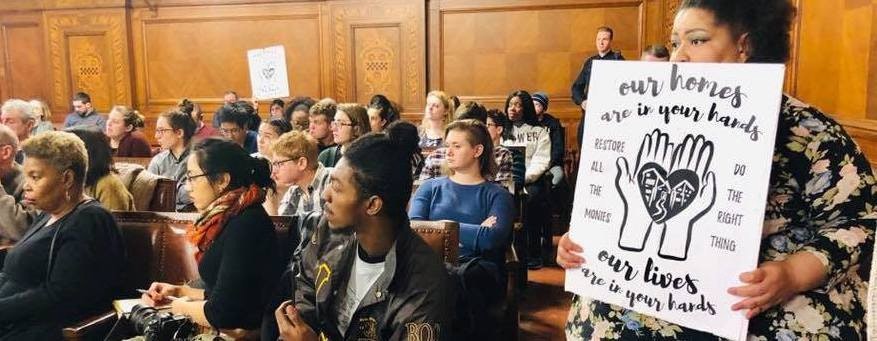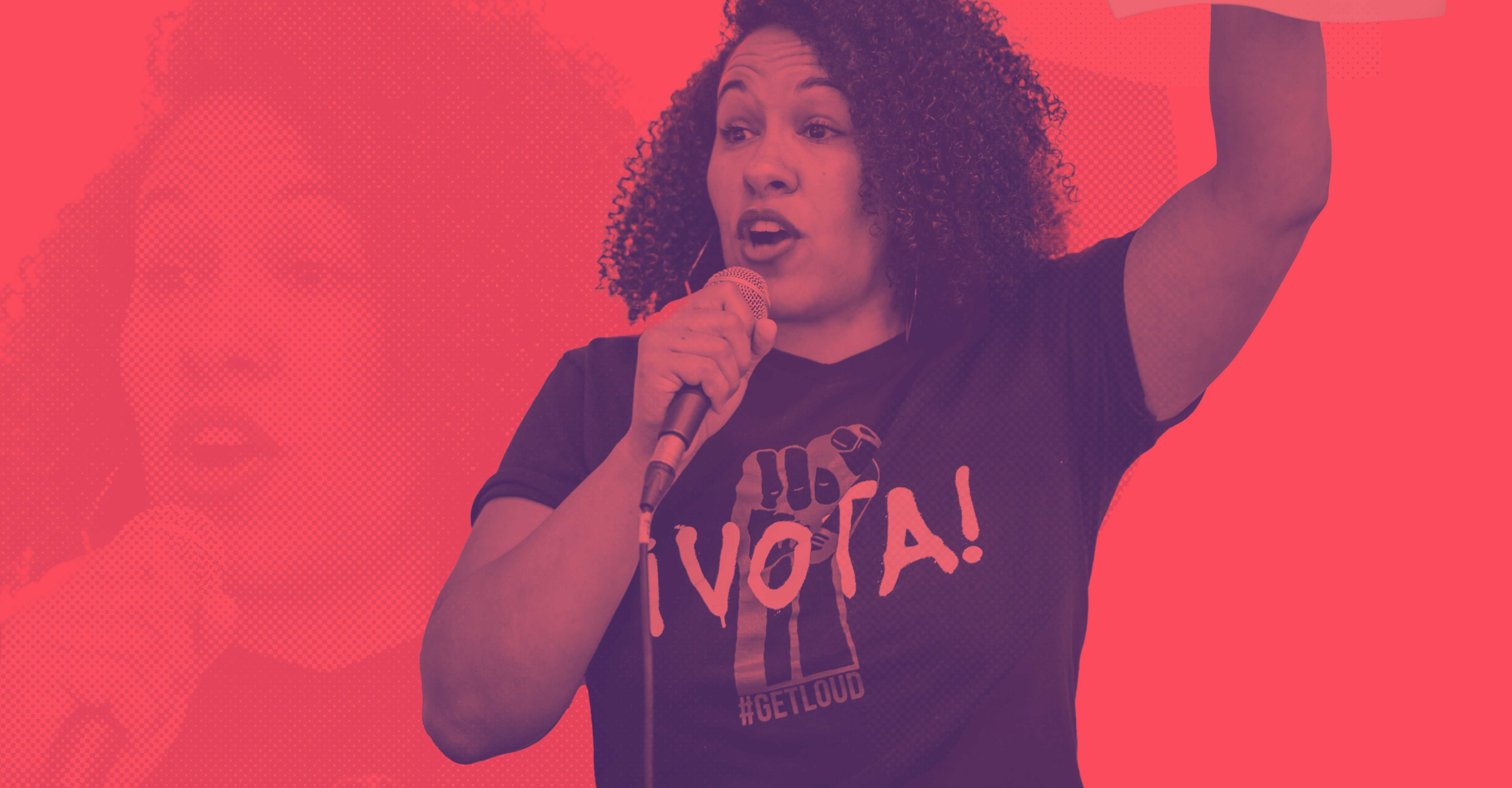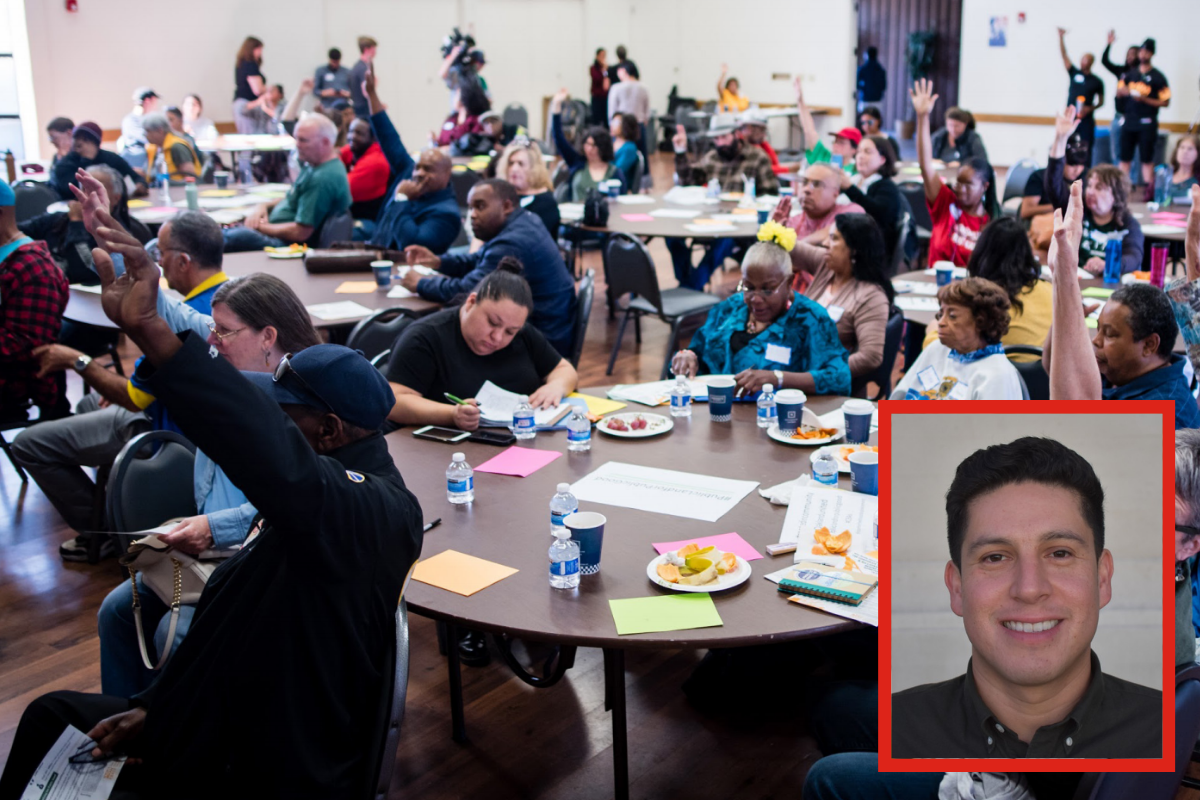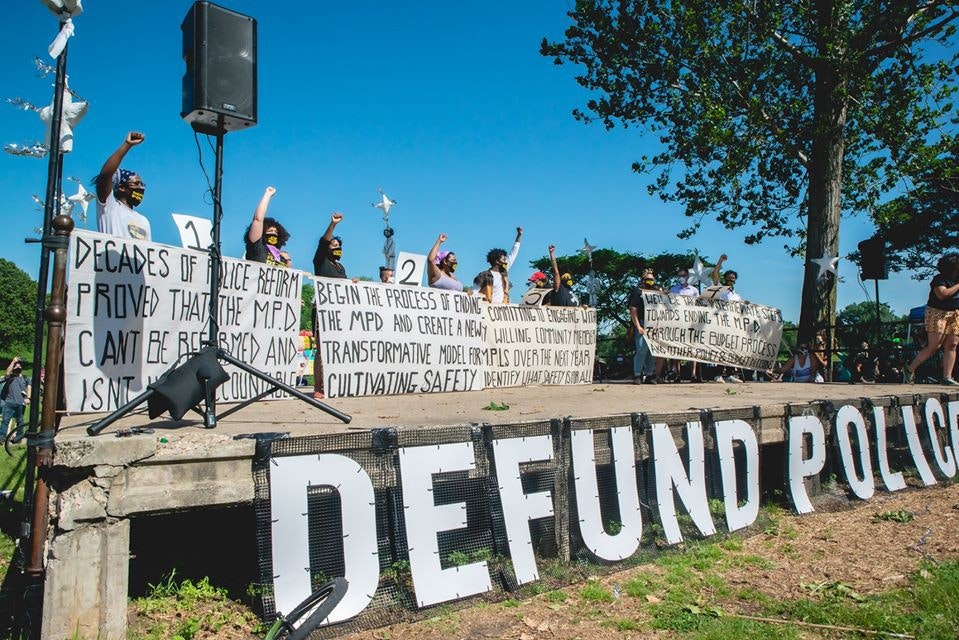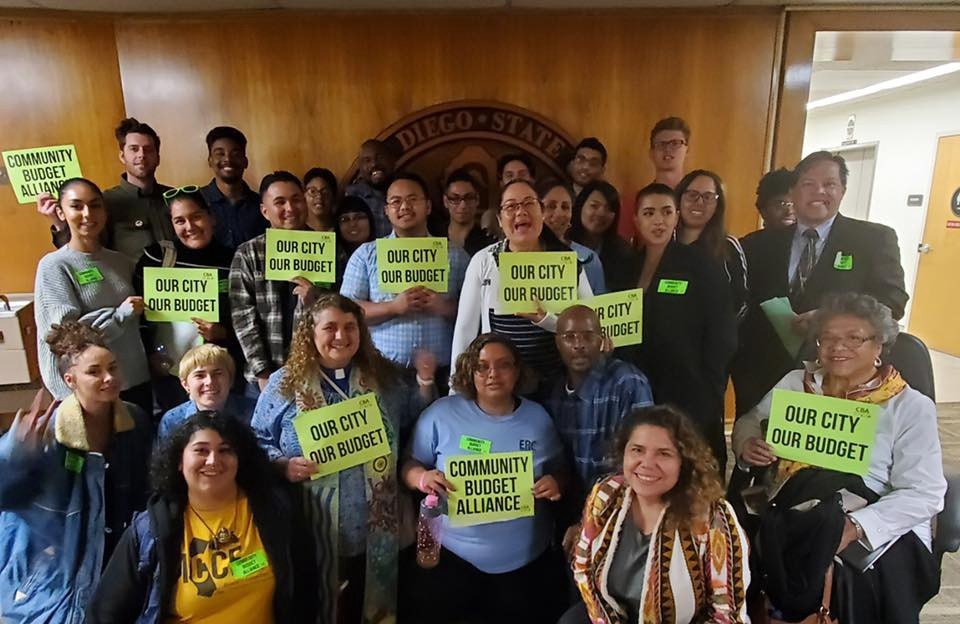By Lauren Jacobs, Executive Director of PowerSwitch Action
From the very first days of this pandemic, regular Americans have jumped into action to keep our communities healthy and safe. We’ve organized for local and statewide policies to make sure our neighbors have food on the table and can stay in their homes. We’ve come together to stand up for undocumented families and support BIPOC- and women-owned small businesses. We’ve bought PPE for grocery workers, health care workers, and teachers and ensured that employers are held accountable for safe workplaces. We’ve pushed our cities to spend less money on police and more money on the health and safety of our communities. This is local democracy in action.
As the leader of a network of community-based organizations in cities across the country, I’ve seen just how much of our country’s most innovative and transformational policymaking happens at the local level. So while I’m not surprised by the paltry federal response to Coronavirus, I am deeply concerned by its implications for the future of both our collective health and our democracy. Cities and states have been on the frontlines of the COVID response and now face a fiscal crisis. According to multiple experts, state and local governments are estimated to face a shortfall approaching $1 trillion by the end of 2021. If Congress does not include adequate funding to address this shortfall in the next relief package, the downstream effects will be disastrous.
We need to fight hard for this funding, because it’s been a major sticking point in the relief negotiations to-date. Congress is deadlocked. Trump said last week that the Administration would not support “bailout money” for “poorly run” cities and states. GOP leadership is still refusing to allow a vote on a comprehensive relief plan passed by the House in May. Meanwhile, one of the President’s ineffective executive actions would slash emergency unemployment and drain billions in FEMA funding during hurricane season. The federal response to this disaster so far has been squarely in line with a decades-long political project to shrink government and enrich the wealthy.
Federal funding for our cities and states is absolutely necessary to protect our communities from further ravages of this pandemic. Without it, we’ll see massive layoffs of teachers and public workers. These layoffs will hit Black Americans, a large percentage of whom work in education, health services, or public administration, especially hard. We’ll have to fight against deep and devastating cuts to schools, transportation, Medicaid, health services, and critical public programs that our cities need to thrive. Forecasts show that if the GOP-backed HEALS Act moves ahead as proposed, cuts to our public sector will ripple through our private sector, and we’ll see an estimated 5.3 million jobs lost nationwide.
We can’t afford to leave people out in the cold. 29.3 million people report that their households are going hungry. 14.8 million are behind on rent. No one is unaffected by this crisis, but it’s harshest burdens are falling heaviest on Black people, Indigenous people, people of color, and immigrants. All the while, Americans are being forced to make unconscionable sacrifices in an economy that mints astronomical profits for billionaires and major corporations.
It doesn’t have to be this way. Let’s challenge the tired scarcity myth that’s helped throw our economy out of balance for decades now. There’s enough wealth in this nation to survive this crisis and emerge stronger for it — if we require the billionaires and major corporations who’ve benefited from its ravages to pay their fair share in taxes and wages too. A responsible, equitable federal response to the pandemic means providing support to all local governments, including counties, cities, and school districts, which are on the front lines meeting the needs of our communities. It means ensuring that we direct funds to tribal nations. It means offering aid without an expectation of repayment, without mandating partnerships with private or philanthropic sectors, and without requiring unsafe school openings.
At the end of the day, our cities, towns, and local governments are where we organize and innovate for the betterment of our communities. Even when the federal government is failing us, this is where we live our values, where we budget our values, and where we legislate our values. We’re working hard to keep each other safe. It’s time for Congress to do it’s part, and pass a pandemic relief package that puts people first.
Lauren Jacobs is Executive Director of PowerSwitch Action, a national network of leading regional organizing and advocacy organizations dedicated to building power and reshaping the economy and urban environment for workers and communities.
